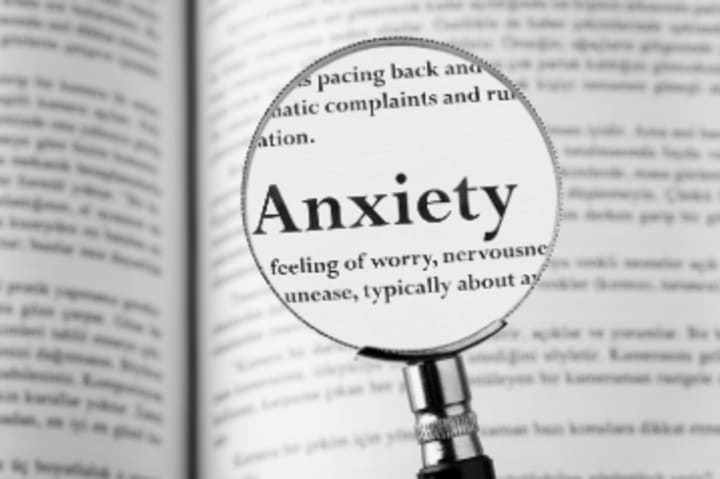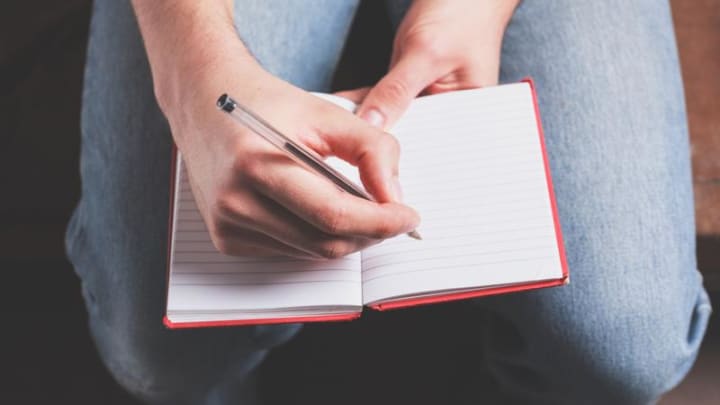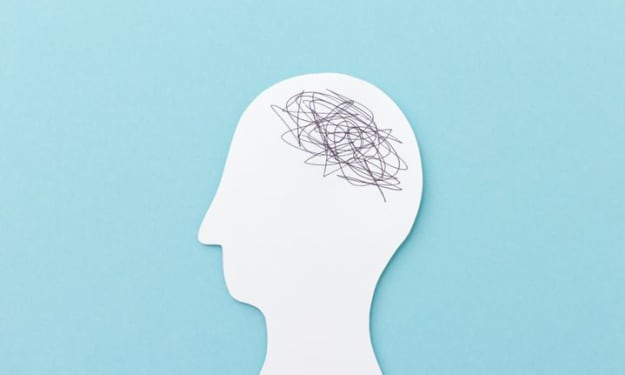
Welcome back! I hope part 1 of this article has helped you. They are simple tips, but very effective for a lot of people. We have to know that anxiety passes and we won't feel like this forever. So many people have told me that I have to learn how to cope with this feeling. Well...that's not a solution. That's giving up on searching for the real solution. We can rewire our brains, improve our health, and get to know our triggers. In doing so, we can attack anxiety instead of it attacking us! So, let's move onto the next few helpful tips.
3. Balancing the Chemicals in Your Brain
The way the brain communicates with itself is by passing on chemicals from one nerve or neuron to another. This affects how you feel and function everyday. These imbalances may be what are causing the rising mental issues such as depression or anxiety.
Let’s take a look at the two brain chemicals that may have something to do with your anxiety, starting with SEROTONIN. Also known as the “ happy hormone”, or the “feel good” brain chemical. Serotonin plays a huge role in sleep, appetite, arousal, and overall mood.
If you have low serotonin, you may be experiencing depression, panic attacks, nausea and/or digestive issues, low sex drive, impulsive behaviour, insomnia, decreased appetite, and you guessed it…general anxiety, or anxiety attacks. So, what can you do to increase serotonin levels?
Exercising is one of the best ways to help your body. It releases an amino acid called Tryptophan into your blood, which is then converted to serotonin into your brain.

Aerobic exercises like swimming, biking, walking, light hiking, dancing, or roller blading seem to be the most effective!
Exposure to light also helps increase serotonin levels. Research shows that serotonin levels are lower in the winter and higher in the summer. So, if you see the sun shining, go outside for a walk and soak it up. During the winter, you can purchase a natural light therapy box to compensate for the lack of natural light on those gloomy winter days.
Another option is serotonin supplements. The supplement I suggest trying out first is called 5-HTP, which crosses the blood-brain barrier and is also then converted into serotonin. If you are on any medications, get your doctor to give you the thumbs up first before trying 5-HTP.

Also, some foods that may help increase serotonin levels are pineapples, tofu, nuts and seeds, eggs, cheese, turkey and salmon.
Let’s move onto the next very important brain chemical.
This one regulates behaviour, motivation, decision-making, attention, emotion, pleasure, and cognition and it’s called DOPAMINE. If you’re low on this chemical, you may notice symptoms including loss of pleasure in things you once found fun, lack of motivation to do anything, and lack of apathy. Here are some supplements you can try.
Probiotics help your body function properly by improving gut heath and preventing or treating mood disorders.
Next is Curcumin, which comes in capsules, powder, or tea. Studies have found that taking Curcumin has the same mood improving effects as taking Prozac does.
Magnesium deficiency has also been connected to decreased dopamine levels as well. One study shows that magnesium boosts dopamine levels and has antidepressant effects on the brain.

Magnesium supplements can be found at any pharmacy or health store.
The benefits of green tea have also been reviewed and the verdict is that green tea can also increase multiple neurotransmitters in the brain including dopamine.
Vitamin B5, B12, and B6 are also very well known for helping balance out anxiety and overall mood. B5 supports the adrenal glands, which reduce stress and anxiety; B12 deficiency can cause any psychiatric symptoms, from anxiety and panic to depression so it’s an important vitamin to balance out depressive moods, and taking B6 together with your magnesium can also balance out your anxiety.
Once you find what combination works for you, your brain chemicals will shift and you will feel so much better! It just takes time and effort to change the way we think and the way our brains have been impacted.
4. Don’t Try To Distract Yourself
When fear and panic hit you all at once or slowly begin to bubble up throughout the day, it's natural for us to want to tell ourselves "No, I don't feel like this, everything is okay, this can't happen now!”
We may try to distract ourselves by doing something else or trying to force our thoughts towards a positive place. I'm sorry to report that this doesn't work for everybody and if it does, it may only be a temporary fix. What if we run out of distractions, or eventually our anxiety overpowers them? In order to change the way we think to help our anxiety fade away day by day, we need to address it when we feel it.

Do not distract yourself at all. Fall into the feeling. Acknowledge that you are feeling weird and detached from reality.
Write it down and think about how you feel.
Where do you feel your anxiety?
In your mind, chest, or stomach?
Does it make you tired, dizzy, nauseous, detached from reality, or all of the above?
If you feel your mind trying to claw it's way out of feeling so horrible, don't listen to it and give in instead.
Explain to yourself, or someone else, what you are thinking and feeling and how the feeling affects your body.
I know you won't want to because who wants to feel their anxiety 100%? Ain't nobody got the time for that! However, it will help you feel less and less of the symptoms in the long run, until your mind slowly rewires itself and unnecessary anxiety leaves your body and mind for good.
5. Understanding Why You Feel This Way and Knowing Your Triggers
Knowing exactly what anxiety is will help you conquer it.

Anxiety is described as a feeling of worry, nervousness, or uneasiness, typically about an imminent event or something with an uncertain outcome. It can also seem like it comes out of nowhere, maybe a result of a PTSD trigger. You can literally be anxious about anything, anywhere at anytime.
You may feel a flood of many feelings all at the same time including feeling detached from reality, feeling unsafe and terrified of something, but you can't figure out what. You may also feel nauseous, exhausted, cold and hot at the same time. Your chest may feel weird and your mind just can't focus on the now.
The key word here is FEEL. Stop and notice that it IS only a feeling and a feeling isn't dangerous in your reality. Nothing is actually wrong and go back to tip #1 if you are already in a panic or anxiety attack. Remember? The part about stating the worst-case scenario to yourself, or someone close by.
We also need to identify our triggers. Ask yourself questions like these.
When was the first time you felt anxious, or had an attack?
Why did you feel worried or unsafe in that moment?
What happens during your day that leads up to that feeling?
Dig deeper to find out why it might have happened. Carry a notepad, so when the feeling happens and takes you by surprise you are actually prepared and can write a list of possible things that may have led to that trigger.

The more prepared you can be, the more control you will learn to have over what is happening to you. This will reduce some of the fear you feel that comes from feeling a lack of control over your own self when these feelings seem to take over.
An example from my own trigger list:
-Eating too much makes me feel nauseous, which leads to anxiety because my first anxiety attack was on my first trip to Europe where I felt nauseous the whole time, so I try to eat small meals to help me feel less full.
-Travelling triggers my anxiety because I'm scared of feeling sick again. This is an issue because I really like travelling. There are times I travel and never feel anxious and other times it's the opposite. For me, these are the opportunities I take to jot down what could have made the difference.
-Another trigger for me is feeling sick when I need to be at work or thinking about feeling nauseous and dizzy when I have a big day ahead of me. Anything I can do to prepare for something coming, I try to have ready before I face the day.

Start your own list the next time you start to feel your own anxiety bubble up. Ask yourself what events led you to that moment.
What are you so worried about?






Comments
There are no comments for this story
Be the first to respond and start the conversation.